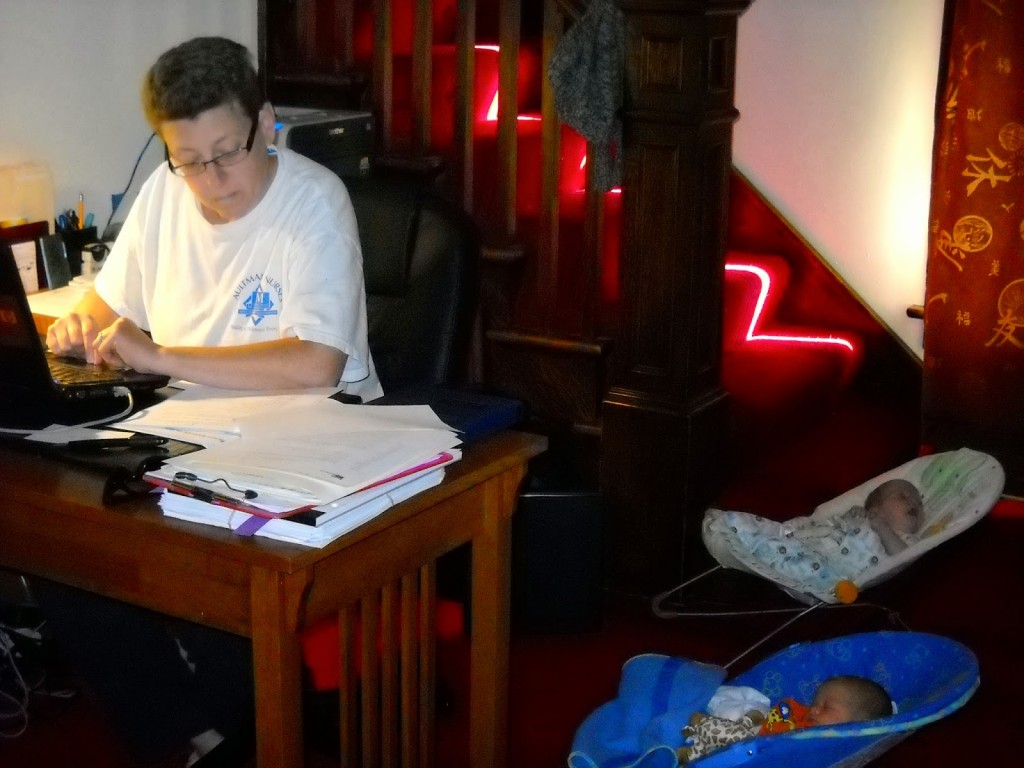 |
| Age: One Day |
 |
| At the celebration lunch. |
 |
| You did it Mom! |
One year. Did I mention that we moved out of state, and went on a trip that lasted a month? It was crazy hard, and sometimes I don’t know how I did it.
I do know that I created some rituals and routines to keep my words flowing. I had a deadline. I could not wait until I felt like writing, or was inspired. Writer’s block was just not an option.
I found that creating small rituals helped me focus when I did have time to write. When I talk about rituals, I am talking about little things that reminded me that I was at the keyboard for a reason. Here are some tips to help you stay on track and keep your writing project going.
1. Use every second. Work when you can. Even if it is only for thirty minutes, it will add up.
 |
| Yep, I worked every time they napped. |
2. Always take five minutes at the end of your work session to make a note to yourself about what you need to write, or accomplish the next time you work. This saves time when get back to writing, and keeps the project moving forward.
3. Keep your project materials together. Searching for materials wastes time, and distracts you from writing.
4. Find a way to organize your notes and materials that works for you. Once you find a way, stick with it until the end of the project. If you are tempted to stop work to reorganize, resist. Reorganizing is a huge waste of time. If you want to try a different method, save it for the next project.
5. Write, even when you don’t feel like writing, when you want to quit, when you are sick and tired, and would rather do anything else. Keep going.
6. Ask for help when you need it. I had a babysitter once a week for six hours. I did not go to the grocery store, do laundry, sleep or any of the hundred other things that needed to be done. Guard your work time.
7. If you work with music on, create a playlist that you use for all your work sessions for your project. Music can help shift your mood, and stimulate your writing. My playlist was called “Write the MotherF*$^er”. I still use it.
8. Make yourself accountable to someone. If you are in school, this would be your advisor. If you are working on your own, find a critique group or writing partner.
9. Do not point a baby you just fed at your research notebook. This is a bonus tip. I was cleaning out my project files last week and I found my thesis research notebook. It still smells faintly of baby vomit.
10. Believe. Believe in your project. Believe in your ability.
I believe in you. Get to work.



